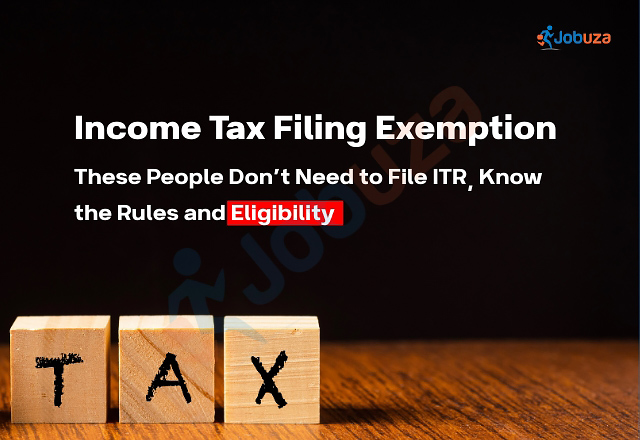Who Is Exempt from Filing Income Tax Returns? Know the Rules and Eligibility
As the new financial year begins, the Income Tax Return (ITR) filing season is in full swing. While most salaried employees, freelancers, and business owners are busy preparing their tax documents, not everyone is required to file an ITR. The Income Tax Department provides exemptions to certain categories of taxpayers, reducing the burden of paperwork and compliance under specific conditions.
Who Needs to File Income Tax Returns?
According to the Income Tax Act, anyone whose annual income exceeds the basic exemption limit must file an ITR. For the current financial year, this exemption limit varies based on the taxpayer’s age and the type of income they earn. Whether you are salaried or self-employed, if your income crosses the prescribed threshold, filing an ITR becomes mandatory.
However, the law also allows specific exemptions, meaning some individuals can skip filing returns under certain conditions.
Who Is Exempt from Filing ITR?
A major exemption under the Income Tax Act applies to senior citizens aged 75 years or older. If their income comes only from two sources—pension and interest earned from savings or fixed deposits in the same bank—they are not required to file an ITR.
This exemption aims to simplify tax compliance for elderly individuals who rely solely on pension payments and bank interest. However, it’s important to note that the pension and interest must be credited to the same bank account for the exemption to apply.
To claim this benefit, eligible senior citizens must submit Form 12BBA to their bank. This form serves as an income declaration and enables the bank to deduct the appropriate tax at source (TDS) on both pension and interest income.
Once the form is submitted and the bank deducts the correct TDS, these senior citizens are no longer required to file an ITR—provided they have no other sources of income.
Why Filing ITR Is Still Recommended
Even if you fall below the taxable income limit, filing an ITR has several advantages. Many taxpayers choose to file returns to claim refunds on excess TDS, establish a financial record, or support applications for visas, loans, and government benefits.
For senior citizens eligible for exemption, submitting Form 12BBA and ensuring the bank deducts the correct tax offers peace of mind. However, they should still evaluate whether filing an ITR could help with other financial or legal requirements.
Final Word
If you or your family members fall under this exemption category, carefully check your eligibility and complete the necessary steps on time. The Income Tax Department’s provision for senior citizens is a thoughtful step toward easing tax compliance for those with limited and predictable income sources.


